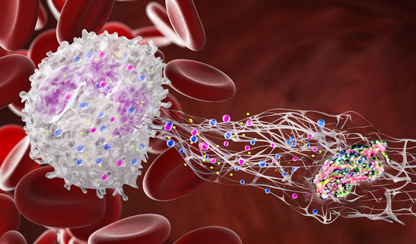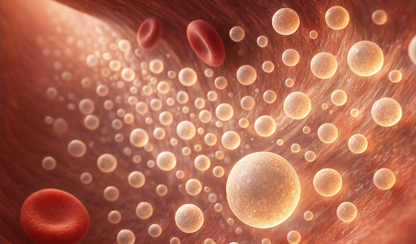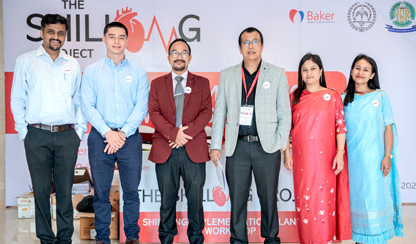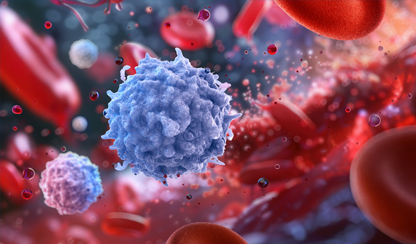24 October 2025
Media release

A new drug being trialled in heart attack patients could reprogram the immune system to prevent inflammation and heart damage following severe heart attacks and promote repair. This could be a game-changer in treating the most severe forms of heart attacks.
The latest data shows that although modern clinical practice has reduced mortality from heart attacks by almost 90 per cent over the last 50 years, deaths from heart failure have more than doubled during this time.
While more people now survive heart attacks, no existing medicines have been able to safely address the excessive immune response that follows the most severe type of heart attack — known as ST-elevation Myocardial Infarction or a ‘widow-maker’. These can happen suddenly when the main artery supplying blood to the heart is blocked.
Dr Daniel Donner from the Baker Heart and Diabetes Institute in Australia led an international team of more than 30 researchers to demonstrate how a new potential treatment uses an antibody to reprogram the immune system response to prioritise healing instead of exacerbating damage.
In the research published by the American College of Cardiology in JACC BTS, Dr Donner’s team has shown that we can use an antibody to reprogram key immune cells called macrophages. This prevents the excessive immune system response from further damaging the heart after the heart attack and avoids further deterioration of heart function.
This study supports emerging evidence that the macrophages are master puppeteers of the immune response, which tends to overreact to a heart attack. This leads to excessive inflammation, recruitment of more immune cells, and long-term damage.
“The antibody we tested blocks CD14, a receptor on the surface of these macrophages that acts as an antenna receiving multiple signals that drive inflammation after a heart attack. Blocking this receptor rewires these key immune cells, preventing them from inflaming the heart muscle, and instead promoting repair and recovery,” said Dr Donner.
“Broad-spectrum suppression of the entire immune response can be dangerous, as these key immune cells also play important roles in healing from a heart attack, and fighting everyday infections.”
Professor Kory Lavine, a cardiologist and co-author on the paper and director of the Center for Cardiovascular Research Washington University in St Louis, USA added, “The unique feature of targeting CD14 is that instead of removing these cells like other immune suppressants, it allows us to put these cells to work regulating the rest of the immune system, avoiding further deterioration of heart function.
“CD14 sits at the intersection of heart inflammation and scarring and serves as a regulator of different immune responses that each contribute to cardiac damage and heart failure. It is unique in that inhibition of CD14 does not cause immunosuppression. Targeting CD14 signalling has great potential in treating and preventing heart failure in these most at-risk patients.”
Clinical trials are currently underway in the USA sponsored by the Australian drug development company, Implicit Bioscience Ltd. Atibuclimab, a clinical stage antibody that targets CD14, has been approved to treat 30 patients who have recently had a severe heart attack or deteriorating heart failure.
Garry Redlich, Implicit Bioscience CEO, reports that all 14 patients involved in the trials so far are responding well. “We have also identified a very useful blood test that can predict whether this therapy is likely to work for a particular patient after their heart attack.
“No existing immune-modulating treatment like this has a precisely matched blood test that can assure cardiologists that they are treating the right patient with the right drug at the right time,” said Mr Redlich. If successful, there are plans for atibuclimab to be tested in larger phase 2 clinical studies around the world.
For further information or to organise interviews please contact:
Loretta Walshe
T: 03 8532 1240
M: 0466 941 942
E: loretta.walshe@baker.edu.au





